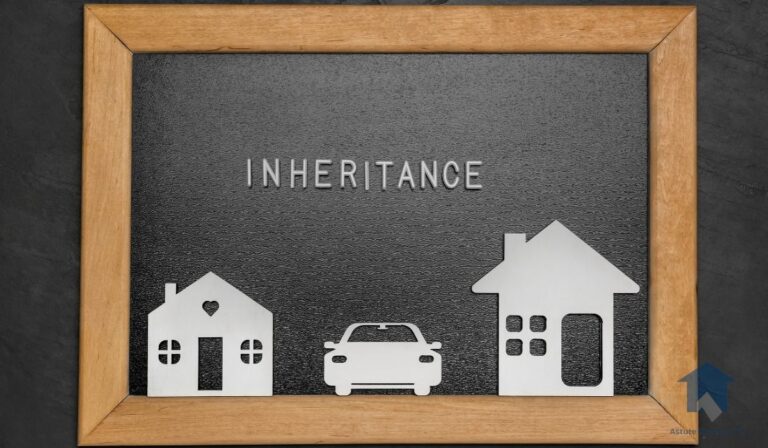Did you know the way your inherited property was owned affects your selling timeline? “Joint Tenancy with Right of Survivorship” bypasses probate, meaning a potentially faster sale. However, properties held as “Tenancy in Common” or in “Sole Ownership” require probate, adding time to the preparation process.
Also, inheriting a property without a will doesn’t speed things up; it often adds complexity!
So, the probate process is wrapping up, and the house is almost ready to hit the market. It’s time to pause and strategically consider your next steps.
From our experience, property preparation when selling an inherited house in Baltimore is crucial, if a quick good sale is what you’re after.
Before you move forward, be sure to check out our previous article that discusses them financial implications of selling an inherited house. Also, our next guide dives into the emotional and family dynamics often involved in these situations. Both resources will give you a solid understanding of what to expect.
Short Summary
- The first step is to properly understand Maryland’s probate process and potential delays.
- You should conduct a thorough inspection, focusing on common structural issues in Baltimore.
- Focus on updates that appeal to current Baltimore buyers (kitchens, bathrooms) if you want to renovate first.
- Staging an Inherited Baltimore Home for today’s market can help you sell better.
- Create a realistic budget for preparation, including contractor rates and staging.
- You can partner with a local real estate agent for market knowledge, staging/marketing expertise, and negotiation skills.
- You can consider selling to a cash buyer for a fast and convenient sale, but be aware of potentially lower offers.
Legal and Emotional Preparation for Baltimore Property Sales
Understanding Maryland Probate
Selling an inherited property in Baltimore requires understanding the Maryland probate process. This is how the court validates the will (if there is one) and legally transfers ownership of the property. The Register of Wills in the county where the deceased resided oversees this process. Be prepared for paperwork, potential court appearances, and the possibility of delays. It’s helpful to understand the different types of probate administration in Maryland – small estate vs. regular estate – as this impacts the timeline and complexity.
Inheritance and Capital Gains Taxes
Know the inheritance and capital gains tax rules. Maryland doesn’t have a state inheritance tax for direct relatives (parents, children, spouses). However, this needs to be confirmed for your specific situation. Capital gains taxes may apply to the profit from the sale. The tax basis is usually the property’s value at the time of inheritance, not the original purchase price. Keep detailed records of any expenses related to the property to potentially offset capital gains. Consulting with a tax professional is highly recommended.
Gathering Property Documents
Collect all important property-related documents. This includes the deed, any existing property surveys, past inspection reports, and permits for any past renovations or additions. If the original documents are missing, you may need to obtain copies from the Baltimore City or County Records Office.
Buyers will want this information, and having it readily available can significantly speed up the sale. Also, be aware of Baltimore City or County requirements for property sales, such as mandatory inspections or disclosure forms.
Addressing Emotional Issues and Timeline
Selling a family home in Baltimore, especially one with history and memories, can be emotionally challenging for all involved. Acknowledge these feelings and communicate openly with family members. Consider seeking professional help from a therapist or counsellor specializing in grief or family conflict.
Plan a realistic timeline for the entire process, from initial probate to closing. Spring and summer are often the most active times for selling in Baltimore, but don’t rule out other times of the year. Factor in time for clearing out the house, making repairs, and staging.
Evaluating and Addressing Baltimore-Specific Repair Needs
Conduct Thorough Inspections
Before listing your inherited Baltimore property, get a thorough inspection. Focus on common structural issues in the city, like brick facade problems, settling foundations, and aging rowhouse construction. A qualified Baltimore inspector will identify potential problems early.
Prioritize Infrastructure Repairs
Baltimore’s aging infrastructure often needs attention. Prioritize repairs to essential systems like plumbing, electrical, and roofing. Old pipes, outdated wiring, and leaky roofs can deter buyers. Addressing these issues improves the home’s value and marketability.
Address Lead Paint Concerns
Many Baltimore homes built before 1978 may contain lead paint. Maryland law requires disclosure of known lead paint hazards. Consider lead paint testing and remediation. This protects potential buyers and reduces your liability.
Evaluate Foundation Issues
Baltimore’s soil conditions can cause foundation problems. Look for cracks, uneven floors, and sticking doors. A structural engineer can assess the foundation and recommend necessary repairs. Addressing foundation issues is crucial for a successful sale.
Obtain Proper Renovation Permits
If you plan renovations, especially in historic districts, obtain the proper permits. Baltimore City and County have specific building codes and regulations. Failing to get permits can lead to fines and delays. Work with licensed contractors who are familiar with local requirements.
Modernizing Your Baltimore Inherited Property Cost-Effectively
When modernizing, focus on updates that appeal to current Baltimore buyers, like updated kitchens and bathrooms, while carefully balancing modern amenities with the preservation of the home’s historic charm.
Prioritize energy efficiency to attract buyers concerned about costs and be respectful when updating key systems by concealing ducts and wires. Maximize the limited storage space of Baltimore rowhouses with creative solutions to add value.
Staging an Inherited Baltimore Home for Today’s Market When You Plan To Sell On Market
When staging your inherited Baltimore home, highlight its unique features, such as marble steps or stained-glass windows, to showcase its character. While preserving these details, create neutral spaces with fresh paint and decluttering to allow potential buyers to envision themselves in the home.
Address any layout challenges by rearranging furniture or considering open-concept options to improve flow. Enhance curb appeal by ensuring a clean, well-maintained exterior with a fresh door color and tidy landscaping to create a positive first impression.
Consider engaging a professional stager familiar with Baltimore properties to maximize appeal and potentially increase the sale price by showcasing the home’s best features.
Financial Considerations for Baltimore Inherited Property Sales
Understand Maryland Inheritance and Capital Gains Taxes
Navigating the tax implications of selling an inherited property in Maryland requires careful attention. While Maryland doesn’t impose a state inheritance tax on direct relatives (parents, children, and spouses), it’s essential to confirm this applies to your specific situation. Capital gains taxes, however, may apply to the profit realized from the sale.
The capital gain is calculated as the difference between the sale price and the property’s fair market value at the time of inheritance (the “stepped-up basis”). Consult with a qualified tax advisor or estate attorney to understand your specific tax liabilities and explore strategies to minimize them.
Create a Realistic Preparation Budget
Selling an inherited property involves careful financial planning. Start by understanding Maryland’s inheritance and capital gains tax implications. While Maryland doesn’t tax direct inheritances, capital gains taxes may apply to the profit from the sale, calculated from the property’s value at inheritance. Consulting a tax advisor is crucial.
Next, create a realistic budget for preparing the property, considering Baltimore contractor rates for repairs, cleaning, landscaping, and staging. Research potential renovation assistance programs and historic tax credits offered by Baltimore City and County, which could offset improvement costs.
Keep detailed records of all improvement expenses, as these can potentially reduce your capital gains tax liability. Finally, calculate carrying costs like property taxes, insurance, and utilities, factoring in the time needed for preparation and sale. Minimizing these costs will maximize your overall profit.
Working With Baltimore Professionals Specialized In Inherited Properties
Selling an inherited property in Baltimore can be complex, and working with the right professionals can make the process smoother and more profitable. Here are two main options to consider:
Partnering With A Baltimore Real Estate Agent
- Expert Market Knowledge: A local real estate agent experienced in your specific Baltimore neighborhood brings invaluable knowledge of current market conditions, buyer preferences, and pricing strategies.
- Staging and Marketing Expertise: Agents can advise on effective staging techniques to showcase the property’s best features and create a compelling marketing plan to attract qualified buyers.
- Negotiation Skills: A skilled agent will negotiate offers on your behalf, aiming to secure the best possible price and terms for the sale.
- Network of Professionals: Agents often have established relationships with local contractors, inspectors, and attorneys, streamlining the preparation and closing processes.
Be sure to choose an agent with a proven track record in selling inherited properties and a deep understanding of the Baltimore market. Interview several agents and compare their strategies and commission structures.
Selling To A Cash Buyer
- Fast and Convenient Sale: Cash buyers offer a quick and hassle-free sale, often closing in a matter of weeks. This can be particularly appealing if you need to sell the property quickly due to financial or personal reasons.
- No Need for Repairs or Staging: Cash buyers typically purchase properties “as-is,” eliminating the need for costly repairs, renovations, or staging.
- Simplified Process: The transaction is typically simpler and more straightforward than a traditional sale, with fewer contingencies and less paperwork.
Cash offers are often lower than market value, reflecting the convenience and reduced risk for the buyer. Carefully weigh the pros and cons of a cash offer before making a decision. Even though we are cash buyers ourselves, we want you to make sure to research the reputation and legitimacy of any cash buyer before engaging in negotiations.
Checklist For Preparing an Inherited Baltimore Property for Sale
Ideally you’d do these steps one after the other but you won’t necessarily have to go from top to bottom. However, you can skip some steps then go finish them later.
☐ Understand how the property was owned and its impact on the probate process.
☐ Seek legal guidance on Maryland’s probate and inheritance laws.
☐ Collect the deeds, surveys, permits, and inspection reports.
☐ Understand potential capital gains taxes and strategies to minimize them.
☐ Estimate costs for repairs, cleaning, staging, and marketing.
☐ Research Baltimore City/County renovation grants and tax credits.
☐ Keep detailed records of all improvement costs.
☐ Determine expenses like taxes, insurance, and utilities.
☐ Identify structural issues, lead paint hazards and infrastructure needs.
☐ Address essential plumbing, electrical, and roofing issues.
☐ Secure necessary permits for any planned renovations.
☐ Remove personal items and thoroughly clean the property.
☐ Create inviting spaces that showcase the property’s potential if you want to sell on the market.
☐ Choose a Real Estate Agent OR Consider Cash Buyers. Weigh the pros and cons of each option.
☐ Create a compelling listing and reach potential buyers if you want to sell traditionally. If not, search for reputable cash buyers online.
☐ Lastly, work with your agent or buyer to reach a favorable agreement.
Final Thoughts
Selling an inherited property in Baltimore can feel overwhelming, but with careful planning and preparation, you can sell it within several months. This guide has walked you through the key steps, from understanding the legal and financial aspects to modernizing and staging the property to appeal to today’s buyers.
Remember to consult with qualified professionals, such as estate attorneys, tax advisors, and real estate agents, to ensure you’re making informed decisions every step of the way.
Now, as a real estate veteran, let me share my two cents on the “cash buyer” option.
Look, in this business, time is often money. Selling to a cash buyer can be a lifesaver if you need to sell quickly and avoid the hassles of repairs, staging, and lengthy negotiations. We’ve seen countless situations where families just want a clean break and a fast closing.
However, be realistic: cash offers are typically below market value. If you’re not in a rush and are willing to invest the time and effort into preparing the property for the market, you’ll likely get a higher price with a traditional sale. However, if speed and convenience are your top priorities, a reputable cash buyer like Astute can be a viable option. Just give us a call, and we’ll answer all your questions.
Frequently Asked Questions
How Do I Avoid Capital Gains Tax When Selling An Inherited Property?
You may be able to minimize or avoid paying capital gains tax on the sale of an inherited house by establishing it as your primary residence for at least two years before selling. However, consulting with a tax professional is crucial to understand your specific situation and navigate the legal process, as laws can change and there might be other strategies available.
What Are The IRS Rules For Selling Inherited Property?
The IRS considers the “stepped-up basis” when calculating capital gains on inherited property; this means the value of the property is reset to its fair market value on the date of the deceased’s death. This new basis can significantly reduce the capital gains tax owed if you later sell the inherited house, as you’ll only pay tax on the appreciation from that date to the sale date.
What Is The Best Thing To Do With An Inherited House?
The best course of action depends on your personal circumstances, but common options include moving into the house, renting it out for passive income, or selling it. An experienced real estate agent can provide valuable insight into the local market and help you determine whether to sell as-is, invest in renovations, or consider an estate sale to liquidate its contents before listing it.
What Is The Tax Loophole For Inherited Property?
While not technically a loophole, the “stepped-up basis” is a significant tax advantage associated with inherited property. Because the value is reset to the date of death, heirs effectively avoid paying capital gains tax on any appreciation that occurred during the deceased’s lifetime, making it a key consideration in the legal process of estate management. Remember that you’re responsible for making mortgage payments and other expenses.




